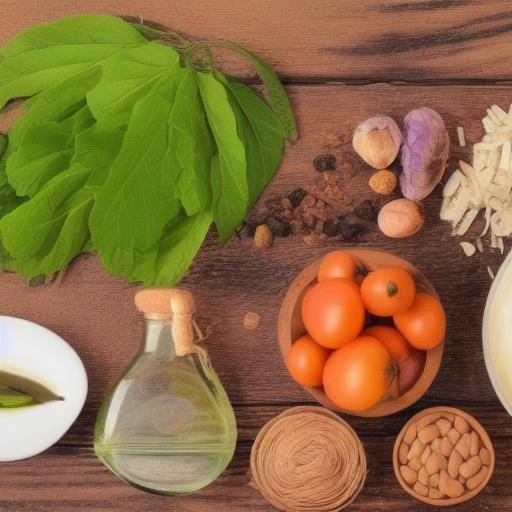
Self-care is an increasingly valued practice in modern society, as it allows us to meet our physical, mental and emotional needs in a conscious and dedicated way. One of the most powerful tools to promote self-care and emotional well-being is aromatherapy. In this article, we will explore in detail how aromatherapy intertwines with self-care and contributes significantly to emotional well-being. From its history and benefits to practical advice and future predictions, this complete guide will provide a deep insight into the intersection between aromatherapy, self-care and emotional well-being.
Introduction
Self-care has gained greater recognition in recent years, as people seek to balance the demands of modern life with attention to their own needs. The aromatherapy, dating back centuries old, has emerged as a powerful tool within this practice. In this article, we will explore how aromatherapy, through the use of natural essential oils, can provide significant benefits for self-care and emotional well-being. From its history to its practical application, we will discover how aromatherapy can be effectively incorporated into everyday life to promote personal emotional well-being.
History and Background
The aromatherapy has deep roots that go back to ancient civilizations such as Egyptian, Greek, and Roman. It was used for therapeutic purposes, religious rituals and embalming. However, it was in the twentieth century when the term "aromatherapy" was coined by the French chemist René-Maurice Gattefossé. This discipline has evolved considerably over the years, and now its focus on emotional well-being has gained significant recognition.
The aromatherapy focuses on the use of essential oils derived from plants to promote health and well-being. These oils, which capture the very essence of the plant, have been used to relieve stress, improve mood, promote relaxation, and improve sleep quality, among other benefits.
Detailed Analysis
Benefits and Challenges of Aromatherapy
The aromatherapy plays a crucial role in self-care by offering a wide range of benefits for emotional well-being. These benefits include stress reduction, mood improvement, concentration stimulation, and anxiety relief.
Despite its many advantages, aromatherapy also faces challenges, especially in terms of standardization of the quality of essential oils and their safe application. Consultation with a professional trained in aromatherapy is essential to ensure proper and safe use.
Practices and Best Practices
The use of aromatherapy as part of self-care has spread to various areas, such as at home, workplaces, spas, and medical environments. Incorporating aromatherapy in everyday life can be as simple as spreading essential oils at home, creating blends of customized oils, using essential oils during massage or bathing, or even carrying essential oils in the form of portable inhalers.
Comparative analysis
Aromatherapy, Autocuity and Emotional Welfare
The aromatherapy, as part of self-care, is closely aligned with the promotion of emotional well-being. Both practices focus on self-care and the promotion of a balanced mental and emotional state. aromatherapy can be considered as a specific tool within the broad spectrum of self-care, with a particular focus on the therapeutic use of aromas. Both practices share the goal of promoting calm, relaxation and emotional balance, making them natural allys on the road to integral well-being.
Practical Tips and Accessible Tips
By incorporating aromatherapy as part of self-care, it is crucial to take into account some practical tips to maximize your benefits. Some best practices include the choice of high-quality essential oils, the proper dilution of oils before their application on the skin, research on the properties of each oil to adapt their use to individual needs, and consultation with a professional in case of doubts or concerns.
Conclusions
The aromatherapy emerges as a powerful tool to promote emotional well-being through self-care. Its ability to relieve stress, improve mood and promote relaxation makes it a valuable resource in finding a healthy emotional balance. By integrating aromatherapy into our self-care routines, we can enhance our connection with ourselves and cultivate an enabling environment for integral well-being.
FAQs
What is aromatherapy and how does it relate to self-care?
aromatherapy is a discipline that uses the aromas of natural essential oils to promote physical, mental and emotional well-being. It relates to self-care by providing an effective tool to manage stress, foster relaxation and improve mood, which contributes to overall emotional well-being.
How can I incorporate aromatherapy into my daily self-care routine?
The aromatherapy can be incorporated in multiple ways in the daily self-care routine, such as the diffusion of essential oils, the use of personalized mixtures in massages or bathrooms, the creation of portable inhalers, or simply inhaling directly from an essential oil jar.
What essential oils are best suited to promote emotional well-being through aromatherapy?
Several essential oils are considered beneficial for emotional well-being, such as lavender for relaxation, bergamot to relieve stress, ylang-ylang to promote joy, incense for serenity, and sandal for calm.
Are there risks or contraindications associated with the use of aromatherapy?
While aromatherapy offers many benefits, it is important to recognize that some essential oils can cause adverse reactions in sensitive people or in cases of inadequate use. It is essential to investigate and consult with a professional before starting aromatherapy, especially if you are pregnant, have some medical condition or are taking medications.
Can aromatherapy be beneficial for emotional self-care in stress or anxiety situations?
Yes, aromatherapy has proven to be effective in alleviating stress and anxiety, since certain aromas can have a positive impact on the nervous system, promoting relaxation, calm and the feeling of emotional well-being.
Can I combine aromatherapy with other self-care practices to maximize your benefits?
Yes, aromatherapy can complement and enhance other self-care practices, such as meditation, yoga, massage, conscious breathing, or therapeutic writing. By integrating aromatherapy with other activities that promote well-being, you can create a more complete and enriching self-care routine.
With this, we complete this complete guide on the use of aromatherapy as part of the self-care and its impact on emotional well-being. By cultivating a deeper understanding and a conscious practice of aromatherapy, we can nourish both our body and our minds, thus strengthening our ability to confront the daily challenges clearly and calmly.
Remember that self-care is a valuable investment in your general well-being, and aromatherapy is a valuable tool within that process. By continuing to explore and learn about the infinite possibilities offered by aromatherapy, you will be advancing on your journey to a more balanced and full life.
Make the most of this valuable information and allow yourself to integrate aromatherapy into your self-care routine in a way that is meaningful to you. I invite you to explore more about this exciting topic and discover how aromatherapy can enrich your daily life.
Enjoy an amazing aromatic experience on your journey to emotional well-being and self-care!






















































